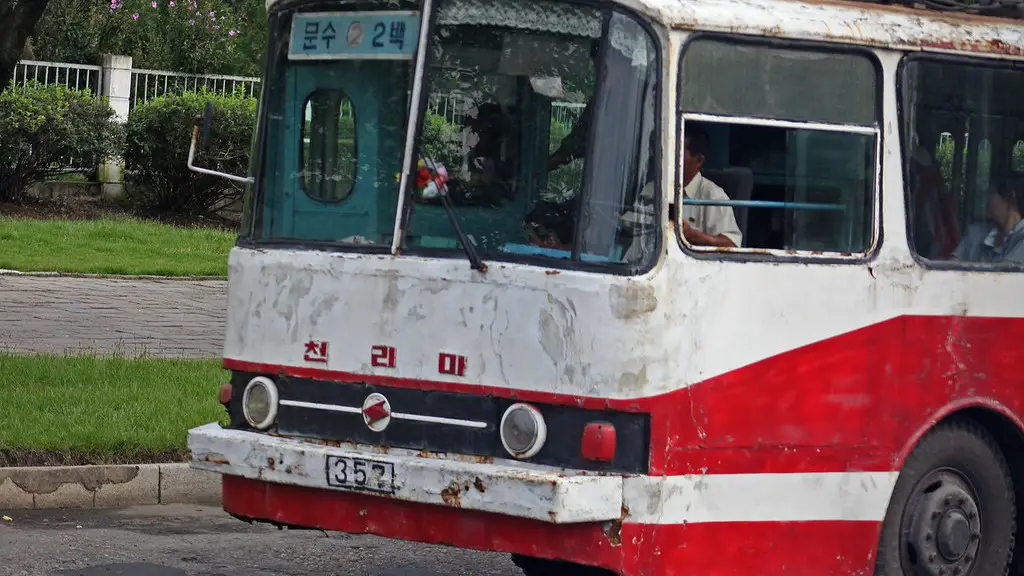Socioeconomic Situation in North Korea
North Korea continues to be an isolated and closed-off country, with stringent control and regulations in place over its citizens since its formation in 1947. With a population of roughly 25.89 million individuals and a gross domestic product per capita at 1,800 U.S. dollars – almost 8 times lower than the South Korea’s 2020 estimated GDP — the country has been dealing with economic stagnation and food shortages due to the economic sanctions imposed by the international community.
The United Nations (UN) estimates that 70% of North Korea’s population, or 18 million people, lack access to enough food and other basic necessities. Moreover, there is limited access to healthcare and medicine in the country — roughly 50 percent of the population is thought to lack the necessary medical supplies.
Due to the dire economic and living conditions inside North Korea, many citizens have resorted to smuggling and other illicit pathways in order to obtain food and other basic needs. The UN has reported that up to 20,000 North Koreans have defected to South Korea since the mid-1990s.
Political System in North Korea
North Koreans experience a heavily authoritarian rule under the control of the Workers’ Party of Korea. As part of its “Socialist Constitution”, North Korea prohibits its citizens from expressing any type of public dissent and practices a full-fledged censorship over its media and literature, blocking access to any type of information from the outside world.
In addition to being one of the most oppressive regimes in modern history, experts worry that North Korea’s nuclear weapons capabilities pose a serious threat to global security. Although ballistic missiles and nuclear tests have been reduced in recent years as part of diplomatic talks between the country and the United States, the stockpiles remain and the country continues to present a major nuclear arms risk.
Further diplomatic talks could be complicated by the lack of trust between the two countries, signifying the challenge ahead in furthering negotiations with North Korea.
Social Climate in North Korea
Several reports from human rights groups have revealed the extent of the atrocities inside North Korea. Many prisoners have experienced torture and inhumane conditions, and the reports state that in some cases, individuals have died in prison as a result.
According to an Amnesty International report in June 2020, “systemic, widespread and gross human rights violations” persist in North Korea. These violations include the use of forced labor, arbitrary arrest and imprisonment, and torture and cruel, inhumane, and degrading treatment to those who are deemed by the government as dangerous to the established power.
The UN High Commissioner for Human Rights, Michelle Bachelet, has called out North Korea for its “unimaginable atrocities” and “complete denial of basic rights.”
Foreign Relations with North Korea
Historically, North Korea has had a negative relationship with many of its neighbors and the international community. Since its formation in the 1940s, there have been three wars on its border with South Korea, and tension remains high between the two countries.
In recent years, the United States has held several diplomatic talks with North Korea in the hopes of building peace and denuclearizing the country. However, these talks have not been successful so far in spite of several attempts to reach a common agreement.
Due to its nuclear weapons capabilities and oppressive rule over its citizens, North Korea’s relationship with its neighbors and the international community has remained distinct and separate from other countries.
International Response to North Korea
As North Korea remains a threat to international peace and stability, the international community has responded with several measures to counter the country’s threatening behavior.
The United Nations Security Council has imposed a broad range of international sanctions to North Korea, aimed at preventing the country from engaging in certain activities and reducing its access to international resources.
Other measures include targeted sanctions, financial restrictions and travel bans. This is an attempt by the international community to pressure North Korea into accepting international norms and to bring an end to its oppressive rule.
Impacts of International Sanctions to North Korea
International sanctions have had a significant impact on North Korea’s economy and its people’s access to food, medical supplies, and other basic needs.
The financial and travel restrictions that have been imposed by other countries have made it difficult for the country to generate revenue or to access resources from abroad. The lack of access to food, medicine, and other basic governments has caused a severe humanitarian crisis in North Korea and has been a major contributing factor to the country’s economic stagnation.
The UN estimates that roughly 2.6 million North Koreans suffer from chronic food insecurity, a situation that is only likely to worsen in the absence of economic aid.
Human Rights in North Korea
In spite of the strict regulations and punishment in place for its citizens, North Korean human rights activists and organizations continue to fight for change and for the freedom of the country’s citizens.
Several organizations such as the Korea Future Initiative and Amnesty International have raised awareness about the human rights abuses taking place inside North Korea, and have called for more international attention to the matter.
Additionally, South Korea has continued to support initiatives aimed at improving human rights in North Korea in recent years, with the hope that it will facilitate the reunification of the two countries and end the era of oppression in the North.
Impact of Digital Technology on North Korea
The growing availability of smartphones and the Internet have had an impact on North Koreans, who now have access to restricted information from foreign media outlets and social networking sites.
Digital technology is offering a glimmer of hope to many North Koreans who are able to stay informed and connected with the outside world. Activists have been using digital media to spread awareness about human rights violations in the country and to raise international attention to the matter.
While the use of digital technology still poses some challenges due to the country’s limited Internet access, the growing prevalence has provided North Koreans with access to information and to sources of entertainment, giving them some reprieve from the oppressive measures imposed by the government.
International Efforts to help North Korea
The international community has responded to the dire humanitarian situation in North Korea with several initiatives in recent years. The United Nations, the United States, and the European Union are the leading providers of humanitarian assistance to North Korea, providing millions of dollars in aid for food, medical assistance, and other basic needs.
In addition to providing assistance, the international community also has been actively engaged in diplomatic talks to reduce tensions and to support the reunification of North and South Korea. In June 2018, the leaders of North and South Korea signed the ‘Panmunjom Declaration’, outlining their commitment to peace and the reunification of the two countries.
Other initiatives include international organizations such as the United Nations Development Programme, which are working to promote sustainable economic and social development in North Korea.
Conclusion
The once closed-off country of North Korea still remains isolated and may prove difficult to negotiate with in the future. The decades-long economic stagnation and human rights abuses in the country still remain today, and yet there will be rays of hope through the growing use of digital technology and the efforts of international organizations. Even with the bleak outlook, only time will tell if Pyongyang will open up to the rest of the world and begin the process of reunification with South Korea.


